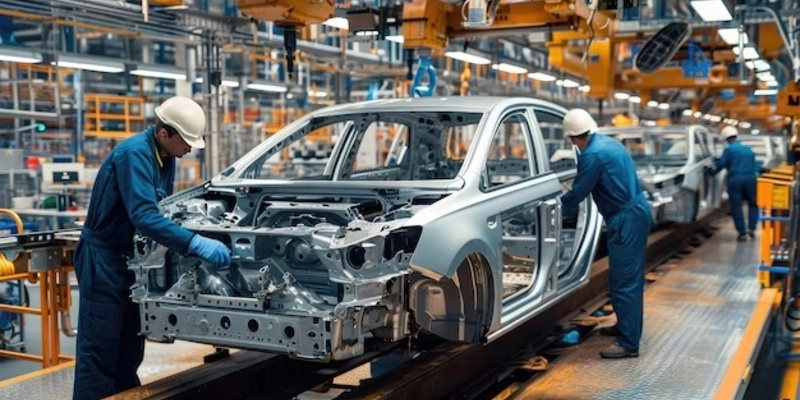The transition towards electric mobility entails profound changes in the automotive industry, altering the employment structure and the professional profiles required.
According to a study conducted by the German Automotive Industry Association (VDA) in collaboration with the Prognos AG institute, electrification could lead to a reduction in employment within the automotive powertrain supply chain.
This transformation has already begun to manifest in Germany, where political and economic conditions increasingly determine the level of industrial competitiveness in the automotive sector.

Hildegard Müller, President of the VDA, explains that the transformation not only modifies the demand for labour in terms of quantity but also in the quality and specialisation of professionals.
Figures reveal that approximately 46,000 jobs have been lost between 2019 and 2023, representing a 25% reduction in the workforce in certain sectors of the industry.
Moreover, the study forecasts the loss of a further 140,000 positions by 2035.
This underscores the necessity for a comprehensive strategy that enables the industry to confront these challenges and maintain competitiveness in a rapidly evolving market.
The VDA’s research analyses the evolution of approximately 700 professions, identifying areas that will lose relevance and those that, conversely, will experience growth.
Among the most affected professions are internal combustion engine technicians and assemblers of traditional transmission systems.
This is due to the simplification of electric motors, which require fewer components and, consequently, less specialised personnel for maintenance and assembly.
However, this transformation also opens new opportunities in areas related to electrification, such as battery manufacturing, charging network management, software development, and automotive cybersecurity.
In this context, Müller states: “It is crucial that the political environment generates favourable conditions, such as competitive energy prices, a reduction in bureaucracy, and an attractive tax system.”
For what purpose?
“To enable the automotive industry not only to maintain its relevance in Germany but also to create new jobs in the country,” she asserts.
If this favourable environment is not achieved, there is a risk that these new jobs will be generated in other countries, particularly those with a more flexible regulatory framework that meets the needs of the modern industry.
The study also notes that while the advancement towards electromobility is inevitable, political conditions can significantly influence the speed and depth of this transformation.
Müller emphasises that for Germany to remain competitive in this field, it is essential to implement rapid planning and approval procedures, free trade agreements, and sustainable energy infrastructure.

Supporting Müller’s comments is Thomas Mertens, a member of the Board of Directors of Authorities and Specialist Organisations within the Federal Association for New Mobility Consulting (BBNM e.V.).
In a LinkedIn post, he criticises those sectors that promote alternative technologies such as eFuels at the expense of electromobility.
In his view, the effort to maintain fossil fuels hinders the evolution towards a cleaner economy and undermines job stability in the automotive industry.
He also maintains a dependency on fossil resources that negatively impacts both the economy and the environment.
Training and adaptation as key factors
One of the main challenges facing the industry is the need to retrain its workforce.
With the rise of electrification, the skills required are changing rapidly.
Currently, areas such as software development, artificial intelligence, and energy storage system design are experiencing growing demand, but the shortage of skilled labour could impede growth in these sectors.
According to Müller, a national strategy is needed to incentivise continuous training in these critical areas.
Furthermore, workers in the automotive sector must receive support to adapt their skills to the new market demands, enabling them to contribute actively to the development of electromobility.
The VDA‘s study concludes that the transition, although challenging, presents an opportunity to create a more modern and sustainable automotive sector.
For Germany to maintain its leadership position in the global market, collaboration between the public and private sectors is essential.








